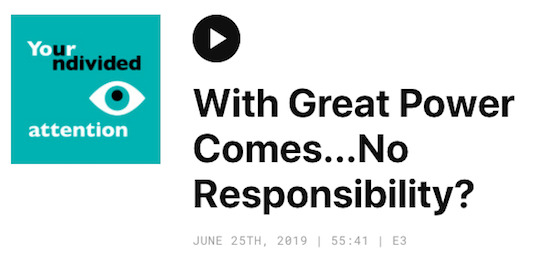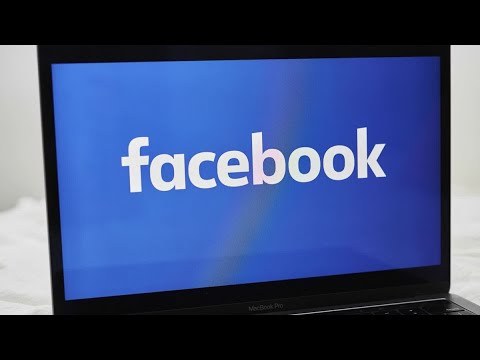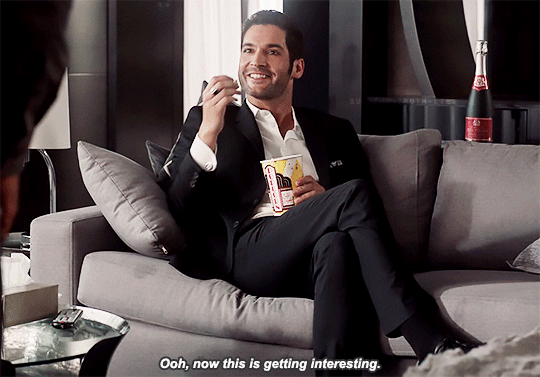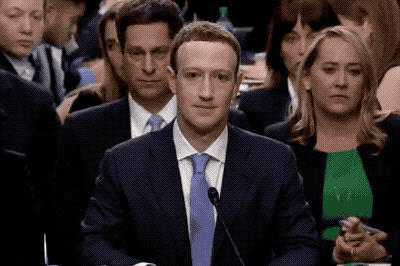#Yael Eisenstat
Note
Also, as much as I support tumblr making a move toward monetization (I'm glad it's survived for so long, all things considered) I really hope your team is looking into figures like Yael Eisenstat who have spoken out about the business model of companies like Meta. Please operate differently. This is the only social media I use because it's been able to escape the trend of toxicity, emotional manipulation and extremism. It's not only due to the community on Tumblr, but the way the site has been designed for all these years. I hope Tumblr grows in a way that leads the way for humane social networking sites going forward and doesn't follow in the footsteps of the sites that are literally fuelling the deterioration of civil society. If there's a better email or person I can share these sentiments with, don't hesitate to let me know.
Hey there, @vraist!
First things first: thank you for raising these points. They’re all extremely important to us and at the core of what we value at Tumblr. It’s also what we want to continue supporting well into the future. Ultimately, we want to do it as well as possible to give you all the best possible Hellsite—and the best possible community. So feedback like this is gladly appreciated.
In fact, that feedback and the questions you send to us each week are a vital part of that. So please do keep it rollin’!
Love,
—Cyle (Tumblr Engineering)
158 notes
·
View notes
Photo

Yaёl Eisenstat:
“What I find fascinating is how you can have the smartest people working on these things, but as soon as there is a problem: "Oh, that's too hard to fix it."
How many times have we heard Mark Zuckerberg or Sheryl Sandberg say: "It's really hard. We're sorry. We know we need to do better, but it's really hard."
And so this might sound like a harsh statement, but if it is so hard for you to figure out why certain content is going viral — the New Zealand attack is a perfect example.
If it is so hard for you to figure out why your algorithms are doing certain things, I would say shut it down.
I don't mean shut down Facebook. Shut down your recommendation system and rebuild it, or figure it out.
Because if you were smart enough to build the system, how are you not smart enough to be able to fix it?”
Source: Your Undivided Attention: Episode 3 — With Great Power Comes… No Responsibility?
14 notes
·
View notes
Link
I never have been on Facebook. When I first heard about it back when it started I was like “Aw, hell, naw...” I could see it was evil from the git-go.
ERIC GARLAND HAS SOME GREAT THREADS ON THIS ON HIS TWITTER PAGE.
3 notes
·
View notes
Link
8 notes
·
View notes
Note
Question: Do you genuinely hate/dislike Facebook as a whole (platform and company), or did you like it but it went down a path you didn't like (company should have done better for the platform)? Either is completely valid, to be honest. I think the whistleblowers and Yael Eisenstat might have felt the same with the latter.
Like most, I hopped on Facebook around 2008 and I really loved it at first. It was like a cleaner, more professional version of MySpace, and of course, in those days, it really was a place for family and friends to stay connected. I'm an artist and photographer, so I then created a fan page for my art and everything was pretty great until they introduced the dreaded algorithm that decided what you did and didn't see, and then my art started getting censored (fine art nudity) and fewer and fewer fans of my work were seeing my posts. I had created an IG account a few years later to escape the awful, paternalistic and greedy oversight of Zuckerberg who then acquired IG in 2012 and I immediately knew, it was only a matter of time before IG turned into a dumpster fire of awful as well. As a creator it became harder and harder to rely on Zuckerberg's properties to market myself and my work, and yet he was simultaneously gobbling up (or crushing) every competitor out there effectively creating a giant monopoly and screwing all of us.
I began Forsakebook back in 2017, probably after either being banned from FB or IG for the 593rd time for simply trying to share my work and promote my art or for realizing I had lost several close friends and family over differing political views over the previous several years because FB basically became this toxic, divisive place and every user existed merely as a revenue generator for that sociopathic piece of shit who knows full well that we—and our data—are the product he's selling.
He really is the biggest piece of shit there ever was. He's ruined the internet.
So in summary, it began as a cool thing that devolved into a truly awful thing due solely to MZ and his seemingly bottomless well of greed.
#facebook#instagram#social media#mark zuckerberg#question#anonymous question#forsakebook#suckerberg#delete instagram#delete social media#delete facebook#facebook is awful
0 notes
Text
Facebook Oversight Board punts on Donald Trump ban
Note: This was originally published as the daily newsletter for the Columbia Journalism Review, where I am the chief digital writer
For several months, those who follow politics and those who are more interested in social technology have both been waiting with bated breath for a decision on whether Donald Trump would continue to be banned from posting to his account on Facebook. The former president’s account was blocked after the social network decided he used the site to foment violence, resulting in the attack on the US Capitol on January 6th, and then the decision was sent to the company’s so-called Oversight Board for review. The board — a theoretically arm’s length group of former journalists, academics, and legal scholars, including the former Prime Minister of Denmark, the former editor-in-chief of The Guardian, and a former US federal circuit-court judge — handed down its ruling on Wednesday. The board decided that Facebook was right to have banned Trump from the network for fomenting violence, but said the company had no official policy on its books that allowed it to ban him (or anyone else) permanently, and told Facebook to come up with one if it wanted to do this in the future. This appeared to please some people partially, but almost no one completely.
For some critics, including the so-called Real Facebook Oversight Board — a group that includes former CIA officer and former Facebook advisor Yael Eisenstat, Facebook venture investor Roger MacNamee, and crusading Phillippines journalist Maria Ressa — the board’s decision on Trump just reinforces the fiction that the Oversight Board has any power whatsoever over the company. Although Facebook has gone to great lengths to create a structure that puts the board at arm’s length and theoretically gives it autonomy, the board was still created by Facebook and is funded by Facebook. It also has a fairly limited remit, in the sense that it can make decisions about whether content (or accounts) should be removed or not, but it has no ability to question or influence any of Facebook’s business decisions, or the way its algorithms function, how its advertising strategy works, and so on. The board may have advised Facebook that it should have a policy about how to deal with government leaders who incite violence, but if the company decides not to create one, or not to implement it, the board can do nothing.
On a broader level, some critics argue that all of the attention being paid to the Oversight Board and its Trump decision — not to mention the references to it being Facebook’s Supreme Court — play into the company’s desire to make it seem like a worthwhile or even pioneering exercise in corporate governance. For some at least, it is more like a sideshow, or a Potemkin village: it looks nice from the outside, but behind the facade it’s just a two-dimensional representation of governance, held up by sticks. Shira Ovide of the New York Times wrote: “Facbook is not a representative democracy with brances of government that keep a check on one another. It is a castle ruled by an all-powerful king who has invited billions of people inside to mingle — but only if they abide by opaque, ever-changing rules that are often applied by a fleet of mostly lower-wage workers.”
In one sense, the board’s decision was more interesting for what it didn’t do than for what it did. For example, it didn’t do the thing that some have argued was the entire cynical rationale for its existence — namely, to rubber-stamp Facebook’s decisions, and give the company a fig leaf with which to cover up its real intentions. The board’s 35-page decision also didn’t disguise the fact that even it, a body created by Facebook to provide oversight, couldn’t get answers to some of the questions its members had about Trump’s account and its impact. The decision noted that, among other things, Facebook refused to discuss “how Facebook’s news feed and other features impacted the visibility of Mr. Trump’s content; whether Facebook has researched, or plans to research, those design decisions in relation to the events of January 6, 2021; and information about violating content from followers of Mr. Trump’s accounts.” Facebook also declined to talk about whether Trump’s ban impacts the company’s ability to let advertisers target his followers.
In many ways, the Oversight Board decision was like a Rorshach test — it looked different depending on who was doing the looking. So for critics like the Real Oversight Board, it was a craven dereliction of duty, and/or a sign of how fundamentally meritless the board’s entire existence is. For those who wanted Trump’s ban to be upheld, it provides justification for that decision that is based on international human rights law and a number of related legal rulings. Those who question whether the Oversight Board should even have the power it does might be happy that it sent the decision on a lifetime ban back to Facebook rather than rubber-stamping it. Mark Zuckerberg, meanwhile, is unlikely to be pleased — at least not if he was hoping the board would give him a get-out-of-responsibility-free card to play in banning Trump. He now has six months to decide whether to ban Trump forever, and to come up with a policy that he can point to for justifying that decision.
Here’s more on Facebook and Trump:
Awkward: “The Board continues to ground its decisions in international human rights law. This is both understandable and perhaps inevitable given the charter,” wrote Nate Persily, a professor of law at Stanford. “However, I think this approach is fundamentally misguided: Facebook is not a government and the newsfeed is not a public square.” Daphne Keller, Persily’s colleague at Stanford’s Cyber Policy Center, wrote that “I’m glad the FBOB is applying human rights law bc I can’t think of anything better [but] using the most ill-defined variant of already notoriously hazy law to criticize Facebook’s failure to set clearly defined rules is… awkward.”
Simulacrum: What the existence of the Oversight Board obscures, writes Will Oremus in the New York Times, “is that the problems with Mr. Trump’s presence on Facebook — the lies, the propaganda, the incitements — are not just Trump problems. They’re Facebook problems (and to be fair, Twitter problems). That’s why some communication scholars have dismissed the board as a red herring, substituting a simulacrum of due process in certain high-profile cases for substantive reform.”
Serious: For years, technology corporations said banning Trump would be impossible, said Joan Donovan, who runs the Technology and Social Change Project at Harvard’s Shorenstein Center. “It was so beyond their comprehension that powerful people would use their products to their advantage. Now the ball is back in the hands of Sandberg, Kaplan, Clegg, Stone, Bickert, and Zuckerberg. But, the challenge is the same: how seriously are they going to take the design of their systems in the face of its documented damage to democracy and public health?”
Justifiable: Jameel Jaffer of the Knight First Amendment Institute was one of the few who thought the Oversight Board’s decision was right on all counts. “The board justifiably criticizes Facebook for the standardlessness of its decision to ban Trump from the platform indefinitely,” he wrote. “It rightly criticizes Facebook for its effort to use the board as a fig leaf. It appropriately places on Facebook the ultimate responsibility for deciding whether Trump may return to the platform and, if so, on what terms.”
A programming note: We’re continuing to roll out our latest issue of the magazine, which asks the question “What is journalism?” In an entirely digital project, composed of five chapters, we’re confronting the assumptions we make about our work—so much so that we’ve referred to this as “the Existential Issue.” Today we encourage you to read the introduction by Kyle Pope, the editor and publisher of CJR, and check out Chapter 4: When. And as a bonus, come by Galley, our discussion platform, on Friday for a panel on right-wing disinformation with Joan Donovan, Maria Bustillos of Brick House, Emily Bell from Columbia’s Tow Center, and writer Haley Mlotek.
Other notable stories:
While Facebook sent its decision on a Trump ban to its own Oversight Board, Twitter — which permanently banned the former president after the January 6 Capitol riot — chose to survey its users and ask them for advice on how to deal with politicians who misuse the network. The company said it got close to 50,000 response to the question, in 14 languages. A spokeswoman told Reuters that the month-long survey asked questions like whether world leaders breaking Twitter’s rules should face “greater or lesser” consequences then other users and whether it was ever appropriate for Twitter to permanently suspend the account of a current president or prime minister.
Former New York Times writer Charlie Warzel wrote in his Substack newsletter about the launch of former president Donald Trump’s website/blog, which he said is “essentially a GoFundMe page for the twice-impeached leader of the Republican Party. The one link that does work is the one that says ‘CONTRIBUTE’ and leads to a nice page where you can give the man your money.” But despite how terrible the site is, Warzel says there’s one way it could succeed, and that’s if “journalists, politicos, and cable news producers bookmark the page, sign up for email alerts, and then screenshot his every new missive and post them straight to Twitter,” which he said he has already seen happening.
Larry McShane, a reporter for the New York Daily News, has written an essay published in the Daily News pleading for a new owner to buy the paper from current owner Tribune Publishing, which is controlled by the hedge fund Alden Global. “The situation is dire,” McShane says. Tribune “fired half the newsroom on a single morning in 2018. Though everyone at this paper has done their best to rebound, and I’m proud of so much we do every day, we are in many ways still reeling.”
In an excerpt from a book he has written on Amazon, journalist Brad Stone writes about how chief executive Jeff Bezos waged a war against the National Enquirer over stories about the breakdown of his marriage. “He’d bypassed a largely skeptical media to appeal directly to regular people, only slightly bruising the facts in the process. Just as he’d outmaneuvered countless rivals, he intuitively sensed what AMI’s vulnerabilities were—and surgically attacked them. The entrepreneur who’d already commandeered the business of selling books, then much of retail, plus cloud computing, Hollywood, home speakers, and so on now asserted dominance over that unlikeliest of sectors—the celebrity media game.”
CJR editor Kyle Pope writes about the Gun Violence Coverage Commitment, which came out of a summit that CJR and others convened last month to talk about how to improve gun-violence coverage in the country, including conversations with journalists from the New York Times, the Washington Post, The Trace, The Guardian and others to detail what was working, what wasn’t, and what we can do about it. Those discussions were boiled down into six essential lessons, which form the basis for the Gun Violence Coverage Commitment, which we’re hoping to convince newsrooms across the country to sign on to.
The New York Times reported its quarterly financial results on Wednesday, and said that it added 301,000 digital subscribers during the period. That’s the lowest quarterly increase in more than a year, but it brings the total to almost 8 million. The company’s adjusted operating profit rose by 54 percent to $68 million, much better than analysts expected, and total revenue climbed by about 6.6 percent to $473 million. Online subscriptions and digital advertising together rose 32 percent to $239 million.
Will Lewis, former chief executive officer of the Dow Jones financial news service, is launching a news startup to tackle what he says is a global crisis of misinformation, according to a report from Bloomberg. He says The News Movement will aim to deliver trustworthy and objective information to mass audiences on social media. Lewis, who will serve as publisher and chief executive, is joined by cofounders Ramin Beheshti and Eleanor Breen, two former colleagues from Dow Jones.
Maria Bustillos writes for CJR about the impact of the age of disinformation that we are all living and working in, and talks with experts Joan Donovan of Harvard and Claire Wardle, who runs the fact-checking project First Draft. Wardle talks about how there are two information ecosystems — one that is traditional and hierarchical, and one that is more participatory ecosystem, “where people are told that they can play a role in finding out the truth, that they can find clues to the puzzle they were looking for.” It’s not hierarchical, and information ricochets around from place to place, she says.
Facebook Oversight Board punts on Donald Trump ban was originally published on mathewingram.com/work
0 notes
Text
Q&A with "Real Facebook Oversight Board" members Carole Cadwalladr and Yael Eisenstat on tech criticism, the role of Facebook's Oversight Board, and more (Alex Kantrowitz/OneZero )
Q&A with "Real Facebook Oversight Board" members Carole Cadwalladr and Yael Eisenstat on tech criticism, the role of Facebook's Oversight Board, and more (Alex Kantrowitz/OneZero )
Alex Kantrowitz / OneZero :
Q&A with “Real Facebook Oversight Board” members Carole Cadwalladr and Yael Eisenstat on tech criticism, the role of Facebook’s Oversight Board, and more — The two join Big Technology to discuss tech criticism, Cambridge Analytica, and how Facebook can begin to right its wrongs

View On WordPress
0 notes
Text
Facebook Dropping Election Ads to Limit Trump Victory Claims: Eisenstat

youtube
Nov.04 — Yael Eisenstat, former head of election integrity at Facebook Inc. and visiting fellow at Cornell Tech’s Digital Life Initiative, discusses Facebook’s actions to prevent misinformation on "Bloomberg Technology."
The post Facebook Dropping Election Ads to Limit Trump Victory Claims: Eisenstat appeared first on News Lookout.
source https://newslookout.com/technology/facebook-dropping-election-ads-to-limit-trump-victory-claims-eisenstat/
0 notes
Link
Experts in the field also remain troubled by the problem of big corporations like Facebook, Google and Amazon having the sole power to decide who can and can’t have an online voice. In Vietnam, Facebook has complied with requests from the authoritarian government to remove accounts of dissidents. In India, it has evaded banning ruling party lawmakers even when they’ve broken its rules. Experts are troubled by the timing of the decision in the U.S.: neither Facebook or Twitter decided to suspend Trump until after the Democrats won control of the Senate on Jan. 6 and Biden was confirmed by lawmakers as the next President. “It is hard to view this decision, and the timing, as anything other than trying to cozy up to power, as opposed to some form of responsible stewardship of our democracy,” said Yael Eisenstat, a former Global Head of Elections Integrity Operations for political advertising at Facebook, in a statement.
#facebook#google#apple#amazon#big tech#censorship#online censorship#facebook censorship#forsakebook#suckerberg#delete facebook#delete social media#arbiter of truth#trump#parler#deplatforming#facebook government alliance
0 notes
Text
Tweeted
Dear Facebook, this is how you're breaking democracy | Yael Eisenstat https://t.co/iMMBjacCNx
— Ashish K Bhalla (@Ashish__Bhalla) September 24, 2020
0 notes
Video
youtube
Big brands boycott Facebook over hate speech Facebook is just “tinkering on the margins” of controlling hate speech on its platform, says expert Yael Eisenstat.
0 notes
Text
A former Facebook staffer has piled into the company over its stance permitting politicians to lie in ads on its site.
Facebook's former head of global elections integrity operations published a blistering op-ed article about the company in The Washington Post, arguing Facebook's business model was fundamentally at odds with preventing the spread of political misinformation.
Yael Eisenstat's remarks add to the growing chorus of criticism around Facebook's policy not to fact-check politicians' claims in online ads.
Mark Zuckerberg and Sheryl Sandberg have doubled down on Facebook's policy, saying private firms shouldn't censor politicians or the news.
0 notes
Text
0 notes
Text
Revue de web du 1er aout 2019

Spotify atteint les 108M d’abonnés payant
C’est 8M de plus qu’à la fin du premier trimestre. D’autre part la compagnie suédoise annonce 232M d’utilisateurs actifs chaque mois.
Spotify aurait re-signé des accords avec 2 des « 4 major label »
Sachant que les discussions sont toujours en cours avec Universal et Warner, on suppose que les deals sont signés avec Sony et Merlin.

Spotify acquiert le podcast « The 500 » animé par Josh Adam Meyers
Spotify rachète le podcast de l’acteur, comédien, écrivain et le transforme en Spotify Original. « The 500 » revient sur l’histoire des 500 plus grands albums du magazine Rolling Stone, avec des invités. L'émission rejoint une sélection croissante d'originaux Spotify et ancre leur souhait d’investir dans les podcasts.
L’entreprise ByteDance, propriétaire de TikTok, sur le point de lancer son smartphone ?
Ce n’est, pour le moment qu’au stade de projet, mais affaire à suivre…
Youtube et les ayants-droits réussissent à faire fermer le plus gros site de ripping
Byebye OnliveVideoConverter.com

Lil Nas X bat tous les records en passant 17 semaines au sommet du Billboard Hot 100 !
En partie grâce à lui, les activités de musique enregistrée de Sony ont vu leurs revenus mondiaux de diffusion en streaming augmenter de 26,5% à la fin du mois de juin.


Facebook en connait plus sur nous que la CIA ?
Retour sur le récit de Yael Eisenstat, salariée durant 6 mois au sein du géant. Mensonges, oppression & pression…bienvenue chez Facebook !

Le chiffre d’affaire de Twitter augmente de 18%
Notamment grâce au marché américain et au marché japonais. Aujourd’hui 139 millions d’utilisateurs actifs quotidiens (+ 14% par rapport à l’année dernière). A noter que c’est le premier rapport depuis que Twitter a changer les mesures communiquées.
Pendant ce temps, le petit oiseau fait sa pub dans le métro de New York pour vanter l’authenticité des utilisateurs sur sa plateforme. Quand on sait à quel point le harcèlement est violent sur Twitter, on n’est pas sûr que ce soit très rassurant comme argument…

Instagram est sur le point de lancer une nouvelle fonctionnalité
« Stories about you » permettra de montrer aux utilisateurs quand ils sont mentionnés ou marqués par d’autres créateurs de story. Deux sections bien distinctes sépareront vos stories des stories où vous serez taggués.
Et ce n’est pas tout, deux autres fonctionnalités apparaitront peut-être bientôt dans les stories : un filtre avec un fond vert pour changer l’arrière-plan très facilement et un sticker en réalité augmentée.
Le SMART act souhaite interdire les fonctionnalités addictives sur les réseaux sociaux.
Un projet de loi US veut bannir l’autoplay et le scroll infini pour rendre les médias sociaux moins addictifs. Why not ?

Grand Prix aux Cannes Lion, retour sur la campagne de Wendy’s sur Fortnite.
Et si Fortnite était l’avenir des médias sociaux ?
Les enregistrements de Siri écoutés par des sous-traitants d’Apple ?
Selon un lanceur d’alerte (ou une, on sait pas !), qui fait partie des sous-traitants de la pomme, « il y a eu de nombreux cas d’enregistrements comportant des discussions privées […]. Ces enregistrements sont accompagnés de données utilisateur indiquant l’emplacement, des détails sur le contact et des données sur l’application.” Selon Apple moins de 1% des activations quotidiennes de Siri sont concernées, et il s’agirait d’un travail de contrôle qualité et de classement du service, mais Apple affirme que « les enregistrements de Siri ne sont pas associés aux identifiants Apple des utilisateurs et ne sont pas liés à d’autres données qu’Apple pourrait avoir de votre utilisation d’autres services Apple. Aucun nom ou identifiant spécifique n’est attaché à un enregistrement, et aucun enregistrement individuel ne peut être facilement lié à d’autres enregistrements ».
Bienvenue en 2019 : une gameuse chinoise se faisant passer pour une jolie jeune fille grâce à un filtre dévoile son vrai visage de femme de 50 ans suite à un bug.
Grâce à une technologie que l’on suppose proche du « Deep fake », cette youtubeuse avait réussi à devenir très populaire, en grande partie grâce à la modification de son apparence, au point de gagner des milliers de dollars grâce aux dons de ses fans, majoritairement masculins. Suite à un bug lors d’un live streams le 25 juillet, la supercherie a été découverte et tous ses fidèles fans ont décampé. Ce serait drôle si ce n’était pas si triste…
Uniliver prêt à se séparer de ses marques qui ont un impact négatif sur la planète et/ou notre société (Cornetto, Magnum, Marmite...)
Pour Alan Hope (CEO) il ne suffit plus pour une marque d’avoir des bons produits, une lessive qui lave plus blanc que blanc, ou un shampoing qui fait les cheveux les plus brillants, aujourd’hui les clients veulent que les marques aient un « but », des valeurs. Il met donc au défi toutes ses filiales de trouver comment elles peuvent aider le monde à aller mieux dans les 10 prochaines années. Et c’est vrai que ce genre de discours donne envie de continuer à acheter du gel douche Dove.

D’ailleurs, de plus en plus de scientifiques s’accorderaient à dire que nous n’avons plus que 18 mois pour changer la trajectoire de la crise climatique qui nous attend.
Et les canicules qui s’enchainent sont là pour nous le rappeler, non seulement le réchauffement climatique actuel est inédit du fait de son amplitude et de sa vitesse, mais il est également sans précédent de par son caractère universel. Il y a bien eu quelques périodes de réchauffement et de refroidissement entre l’an un et la fin de l’ère préindustrielle, mais aucune n’a touché de façon simultanée l’ensemble des régions de la planète. La Terre vit sa période la plus chaude depuis 2 000 ans.

Et bonnes vacances hein…
#spotify podcast#spotify numbers#spotify deals#lil nas x#tiktok#facebook data#twitter numbers#twitter ad#instagram stories#ecologie#uniliver#brand responsability#deep fake#fortnite#siri
0 notes
Text
British parliament presses Facebook on letting politicians lie in ads
In yet another letter seeking to pry accountability from Facebook, the chair of a British parliamentary committee has pressed the company over its decision to adopt a policy on political ad that supports flagrant lying.
In the letter Damian Collins, chair of the DCMS committee, asks the company to explain why it recently took the decision to change its policy regarding political ads — “given the heavy constraint this will place on Facebook’s ability to combat online disinformation in the run-up to elections around the world”.
Chair @DamianCollins has written to @facebook's Nick Clegg over changes to political advertising rules ahead of a potential General Election.
Facebook have dropped a ban on “deceptive, false or misleading content” in political ads.
Read more: https://t.co/1mA3d3uDnN pic.twitter.com/2L88mQMDb2
— Digital, Culture, Media and Sport Committee (@CommonsCMS) October 22, 2019
“The change in policy will absolve Facebook from the responsibility of identifying and tackling the widespread content of bad actors, such as Russia’s Internet Research Agency,” he warns, before going on to cite a recent tweet by the former chief of Facebook’s global efforts around political ads transparency and election integrity who has claimed that senior management ignored calls from lower down for ads to be scanned for misinformation.
“I also note that Facebook’s former head of global elections integrity ops, Yael Eisenstat, has described that when she advocated for the scanning of adverts to detect misinformation efforts, despite engineers’ enthusiasm she faced opposition from upper management,” writes Collins.
Facebook hired me to head Elections Integrity ops for political ads. I asked if we could scan ads for misinfo. Engineers had great ideas. Higher ups were silent. Free speech is b.s. answer when FB takes $ for ads. Time to regulate ads same as tv and print.https://t.co/eKJmH7Sa7r
— Yael Eisenstat (@YaelEisenstat) October 9, 2019
In a further question, Collins asks what specific proposals Eisenstat’s team made; to what extent Facebook determined them to be feasible; and on what grounds were they not progressed.
He also asks what plans Facebook has to formalize a working relationship with fact-checkers over the long run.
A Facebook spokesperson declined to comment on the DCMS letter, saying the company would respond in due course.
In a naked display of its platform’s power and political muscle, Facebook deployed a former politician to endorse its ‘fake ads are fine’ position last month — when head of global policy and communication, Nick Clegg, who used to be the deputy prime minister of the UK, said: ” We do not submit speech by politicians to our independent fact-checkers, and we generally allow it on the platform even when it would otherwise breach our normal content rules.”
So, in other words, if you’re a politician you get a green light to run lying ads on Facebook.
Clegg was giving a speech on the company’s plans to prevent interference in the 2020 US presidential election. The only line he said Facebook would be willing to draw was if a politician’s speech “can lead to real world violence and harm”. But from a company that abjectly failed to prevent its platform from being misappropriated to accelerate genocide in Myanmar that’s the opposite of reassuring.
“At Facebook, our role is to make sure there is a level playing field, not to be a political participant ourselves,” said Clegg. “We have a responsibility to protect the platform from outside interference, and to make sure that when people pay us for political ads we make it as transparent as possible. But it is not our role to intervene when politicians speak.”
In truth Facebook roundly fails to protect its platform from outside interference too. Inauthentic behavior and fake content is a ceaseless firefight that Facebook is nowhere close to being on top of, let alone winning. But on political ads it’s not even going to try — giving politicians around the world carte blanche to use outrage-fuelling disinformation and racist dogwhistles as a low budget, broad reach campaign strategy.
We’ve seen this before on Facebook of course, during the UK’s Brexit referendum — when scores of dark ads sought to whip up anti-immigrant sentiment and drive a wedge between voters and the European Union.
And indeed Collins’ crusade against Facebook as a conduit for disinformation began in the wake of that 2016 EU referendum.
Since then the company has faced major political scrutiny over how it accelerates disinformation — and has responded by creating a degree of transparency on political ads, launching an archive where this type of advert can be searched. But that appears as far as Facebook is willing to go on tackling the malicious propaganda problem its platform accelerates.
In the US, senator Elizabeth Warren has been duking it out publicly with Facebook on the same point as Collins rather more directly — by running ads on Facebook saying it’s endorsing Trump by supporting his lies.
Facebook should ban campaign ads. End the lies.
There’s no sign of Facebook backing down, though. On the contrary. A recent leak from an internal meeting saw founder Mark Zuckerberg attacking Warren as an “existential” threat to the company. While, this week, Bloomberg reports that Facebook’s executive has been quietly advising a Warren rival for the Democratic nomination, Pete Buttigieg, on campaign hires.
So a company that hires politicians to senior roles, advises high profile politicians on election campaigns, tweaks its policy on political ads after a closed door meeting with the current holder of the office of US president, Donald Trump, and ignores internal calls to robustly police political ads, is rapidly sloughing off any residual claims to be ‘just a technology company’. (Though, really, we knew that already.)
In the letter Collins also presses Facebook on its plan to rollout end-to-end encryption across its messaging app suite, asking why it can’t limit the tech to WhatsApp only — something the UK government has also been pressing it on this month.
He also raises questions about Facebook’s access to metadata — asking whether it will use inferences gleaned from the who, when and where of e2e encrypted comms (even though it can’t access the what) to target users with ads.
Facebook’s self-proclaimed ‘pivot to privacy‘ — when it announced earlier this year a plan to unify its separate messaging platforms onto a single e2e encrypted backend — has been widely interpreted as an attempt to make it harder for antitrust regulators to break up its business empire, as well as a strategy to shirk responsibility for content moderation by shielding itself from much of the substance that flows across its platform while retaining access to richer cross-platform metadata so it can continue to target users with ads…
from Facebook – TechCrunch https://ift.tt/31GzxLX
via IFTTT
0 notes
Text
British parliament presses Facebook on letting politicians lie in ads
In yet another letter seeking to pry accountability from Facebook, the chair of a British parliamentary committee has pressed the company over its decision to adopt a policy on political ad that supports flagrant lying.
In the letter Damian Collins, chair of the DCMS committee, asks the company to explain why it recently took the decision to change its policy regarding political ads — “given the heavy constraint this will place on Facebook’s ability to combat online disinformation in the run-up to elections around the world”.
Chair @DamianCollins has written to @facebook's Nick Clegg over changes to political advertising rules ahead of a potential General Election.
Facebook have dropped a ban on “deceptive, false or misleading content” in political ads.
Read more: https://t.co/1mA3d3uDnN pic.twitter.com/2L88mQMDb2
— Digital, Culture, Media and Sport Committee (@CommonsCMS) October 22, 2019
“The change in policy will absolve Facebook from the responsibility of identifying and tackling the widespread content of bad actors, such as Russia’s Internet Research Agency,” he warns, before going on to cite a recent tweet by the former chief of Facebook’s global efforts around political ads transparency and election integrity who has claimed that senior management ignored calls from lower down for ads to be scanned for misinformation.
“I also note that Facebook’s former head of global elections integrity ops, Yael Eisenstat, has described that when she advocated for the scanning of adverts to detect misinformation efforts, despite engineers’ enthusiasm she faced opposition from upper management,” writes Collins.
Facebook hired me to head Elections Integrity ops for political ads. I asked if we could scan ads for misinfo. Engineers had great ideas. Higher ups were silent. Free speech is b.s. answer when FB takes $ for ads. Time to regulate ads same as tv and print.https://t.co/eKJmH7Sa7r
— Yael Eisenstat (@YaelEisenstat) October 9, 2019
In a further question, Collins asks what specific proposals Eisenstat’s team made; to what extent Facebook determined them to be feasible; and on what grounds were they not progressed.
He also asks what plans Facebook has to formalize a working relationship with fact-checkers over the long run.
A Facebook spokesperson declined to comment on the DCMS letter, saying the company would respond in due course.
In a naked display of its platform’s power and political muscle, Facebook deployed a former politician to endorse its ‘fake ads are fine’ position last month — when head of global policy and communication, Nick Clegg, who used to be the deputy prime minister of the UK, said: ” We do not submit speech by politicians to our independent fact-checkers, and we generally allow it on the platform even when it would otherwise breach our normal content rules.”
So, in other words, if you’re a politician you get a green light to run lying ads on Facebook.
Clegg was giving a speech on the company’s plans to prevent interference in the 2020 US presidential election. The only line he said Facebook would be willing to draw was if a politician’s speech “can lead to real world violence and harm”. But from a company that abjectly failed to prevent its platform from being misappropriated to accelerate genocide in Myanmar that’s the opposite of reassuring.
“At Facebook, our role is to make sure there is a level playing field, not to be a political participant ourselves,” said Clegg. “We have a responsibility to protect the platform from outside interference, and to make sure that when people pay us for political ads we make it as transparent as possible. But it is not our role to intervene when politicians speak.”
In truth Facebook roundly fails to protect its platform from outside interference too. Inauthentic behavior and fake content is a ceaseless firefight that Facebook is nowhere close to being on top of, let alone winning. But on political ads it’s not even going to try — giving politicians around the world carte blanche to use outrage-fuelling disinformation and racist dogwhistles as a low budget, broad reach campaign strategy.
We’ve seen this before on Facebook of course, during the UK’s Brexit referendum — when scores of dark ads sought to whip up anti-immigrant sentiment and drive a wedge between voters and the European Union.
And indeed Collins’ crusade against Facebook as a conduit for disinformation began in the wake of that 2016 EU referendum.
Since then the company has faced major political scrutiny over how it accelerates disinformation — and has responded by creating a degree of transparency on political ads, launching an archive where this type of advert can be searched. But that appears as far as Facebook is willing to go on tackling the malicious propaganda problem its platform accelerates.
In the US, senator Elizabeth Warren has been duking it out publicly with Facebook on the same point as Collins rather more directly — by running ads on Facebook saying it’s endorsing Trump by supporting his lies.
Facebook should ban campaign ads. End the lies.
There’s no sign of Facebook backing down, though. On the contrary. A recent leak from an internal meeting saw founder Mark Zuckerberg attacking Warren as an “existential” threat to the company. While, this week, Bloomberg reports that Facebook’s executive has been quietly advising a Warren rival for the Democratic nomination, Pete Buttigieg, on campaign hires.
So a company that hires politicians to senior roles, advises high profile politicians on election campaigns, tweaks its policy on political ads after a closed door meeting with the current holder of the office of US president, Donald Trump, and ignores internal calls to robustly police political ads, is rapidly sloughing off any residual claims to be ‘just a technology company’. (Though, really, we knew that already.)
In the letter Collins also presses Facebook on its plan to rollout end-to-end encryption across its messaging app suite, asking why it can’t limit the tech to WhatsApp only — something the UK government has also been pressing it on this month.
He also raises questions about Facebook’s access to metadata — asking whether it will use inferences gleaned from the who, when and where of e2e encrypted comms (even though it can’t access the what) to target users with ads.
Facebook’s self-proclaimed ‘pivot to privacy‘ — when it announced earlier this year a plan to unify its separate messaging platforms onto a single e2e encrypted backend — has been widely interpreted as an attempt to make it harder for antitrust regulators to break up its business empire, as well as a strategy to shirk responsibility for content moderation by shielding itself from much of the substance that flows across its platform while retaining access to richer cross-platform metadata so it can continue to target users with ads…
0 notes